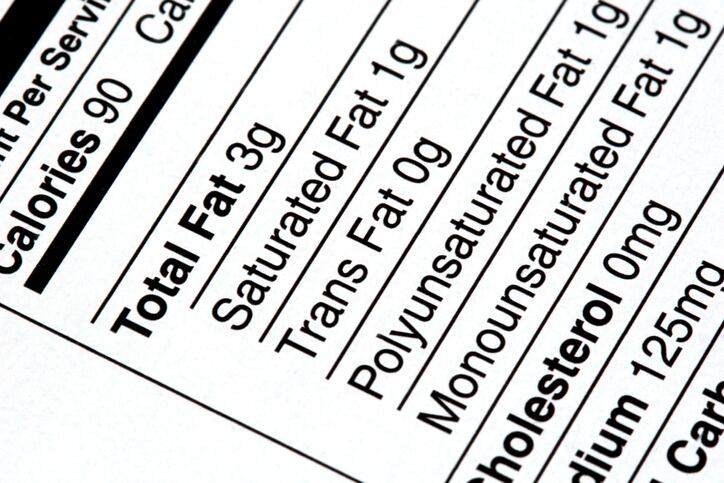Published in the journal Nutrients, the report "Saturated Fatty Acid Chain Length and Risk of Cardiovascular Disease: A Systematic Review" examined five prospective cohort studies that assessed different chain lengths through diet analysis and their link to cardiovascular disease.
While ultimately the report concluded that more research is needed, the body of research reviewed suggested that long chain saturated fatty acids may increase the risk for development of CVD, while short- and medium-chain fatty acids may be more beneficial or neutral for the heart.
“Grouping all saturated fats into one category and therefore one recommendation is remiss, as they clearly have different health impacts based on their varying fatty acid chain lengths,” per the report.
Paper co-author Sue Hewlings of Nutrasource emphasized in a press release that “not all food sources of saturated fat are the same,” likening the differing saturated fat health impacts to how varying chain lengths of polyunsaturated fats such as omega 6 and omega 3 fatty acids have diverse health effects.
“Current dietary guidelines group all saturated fats together, however the conversation needs to change to evaluate different chain lengths of saturated fats and their different health effects,” she suggested. “This is an overdue discussion about a topic that has major implications for public health recommendations.”
‘Foods are not just one thing’
It’s a challenging task, however, as most food sources include various saturated fatty acid chain lengths in addition to other components, making it hard for researchers to draw definitive conclusions regarding risk of CVD.
"It's important to remember foods are not just one thing," added Hewlings. "For example, coconut contains saturated fat, but it's a medium chain fatty acid and contains many other beneficial nutrients and therefore should not be lumped with all saturated fats."
The report did examine coconut research in particular, pointing to an analysis of 12 studies that found “a beneficial effect of coconut milk and coconut oil on lipid profile and CVD risk.” Compared with plant and animal oils, coconut oil significantly increased HDL cholesterol. It raised LDL cholesterol compared with plant oils and lowered LDL compared with animal oils.
However, “because coconuts are not consumed as the only food source nor are a source of saturated fat, there is a need to assess overall dietary patterns when examining diet and CVD relationships,” the report states.
The Coconut Coalition of the Americas applauded the report.
Overall dietary impact
The report also takes a look at saturated fatty acids in conjunction with replacements.
“When examining the impact of diet on CVD risk, it is critical to consider the macronutrient replacing saturated fat as well as the saturated fat chain length, whole foods, and diet patterns on CVD risk,” the report asked. “In other words, if one decreases saturated fat intake, what does one replace it with?”
The study authors note that many replacements for saturated fats could be high in sugar and refined starch, the primary sources of calories in the U.S. diet.
Additionally, with low-carb diets gaining in popularity, many have increased their protein intake. Some studies assessed in the report “found using animal protein to replace [saturated fatty acid] increases the risk for CVD,” while others noted a decrease in CVD risk when replacing saturated fat with plant protein.
The report emphasizes the importance of not looking at saturated fatty acid chain lengths in a vacuum.
For instance, saturated fat benefits can’t be examined in isolation, “rather, dietary patterns should be closely examined, such as the Mediterranean diet or vegetarian diets.”
In most studies reviewed as part of the report, participants who consumed the highest saturated fat amounts also had a low-fiber diet; other research has shown that fiber can help reduce CVD risk.
“It may be best to change the emphasis from nutrient- or macronutrient-specific recommendations to whole-food- or diet-pattern-specific recommendations,” the report says.
Further, lifestyle choices should also be taken into consideration when making recommendations regarding saturated fat. The studies reviewed concluded that people with diets higher in saturated fat also were more inclined to smoke, are less active and have higher BMIs, “which can also contribute equally to increased CVD risk.”

